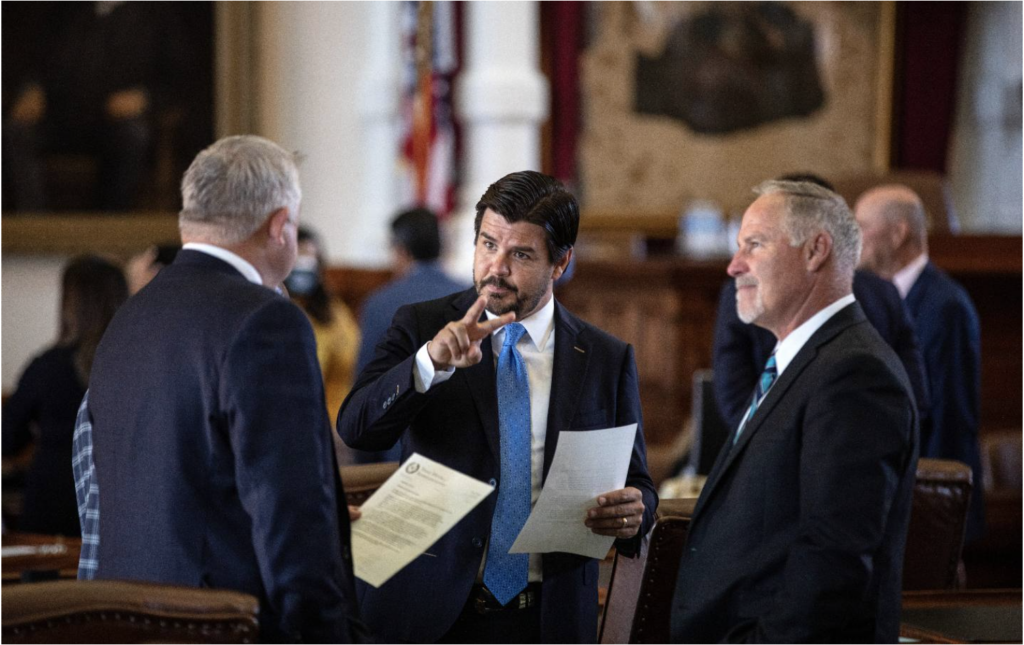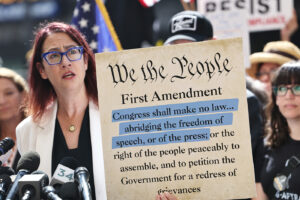October 16, 2023
Texas Republicans Want to Ban the State From Taxing the Rich
By Peter Lucas
Proposition 3 would prohibit the creation of a “wealth tax” in the Lone Star State, putting businesses and billionaires over the average citizen.

(Tamir Kalifa / Getty)
In November, Texas voters will decide on an amendment to the state Constitution known as Proposition 3. The amendment, approved by the Texas Legislature in May, would prohibit the creation of a “wealth tax” in the Lone Star State, including “a tax on the difference between the assets and liabilities of an individual or family.” In other words, Proposition 3 would prevent lawmakers from taxing the rich.
Texas has historically been friendly to the ultra-rich and their pockets, with the state Constitution forbidding an individual income tax. This year, over 45 Texans with a combined net worth of almost $700 billion—in industries like oil and gas, real estate, and tech—were listed among the Forbes ranking of the wealthiest Americans. The richest person in the world, Elon Musk, moved Tesla’s headquarters to Austin in 2021, complaining that California was the state of “overregulation, overlitigation, over taxation.”
Texas wants to be seen as a financial paradise, but when the rich boast about the state’s low taxes, they aren’t thinking about the working- or middle-class citizens. According to the Institute on Taxation and Economic Policy Tax Inequality Index, Texas has the second-most-unfair state and local tax system in the country after Washington. The lowest 20 percent of earners in the state—making less than $20,900 annually—pay the greatest proportion of their family income as taxes at around 13 percent. Yet the top 1 percent of earners—who make above $617,000 annually—pay only 3.1 percent. California, however, was listed as the fairest state, with the most progressive tax structure.


